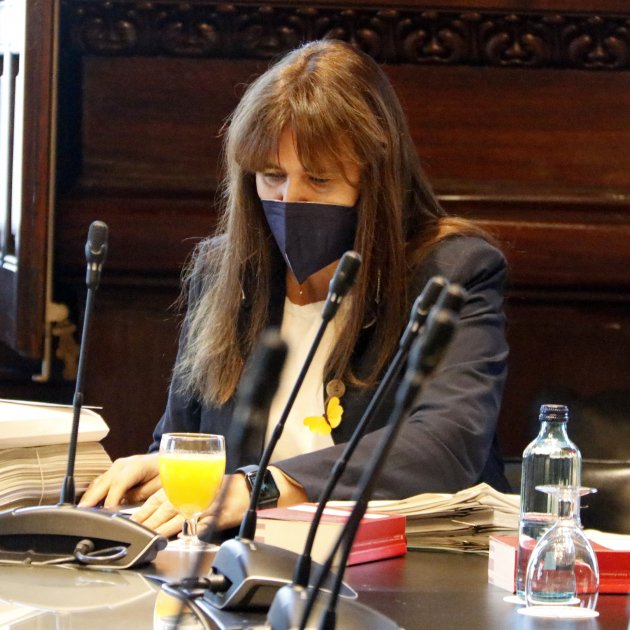The Catalan Parliament's procedural body, the Bureau, has agreed to the complete abolition of the so-called "Age Leave" permissions for civil servants employed by the chamber, which allowed such officials to continue being paid despite not working once they reached the age of 60. Mechanisms to eliminate this anomaly were activated last week after the newspaper Ara explained that 1.7 million euros were being paid annually to public servants employed by the Parliament who were not actually working. The Bureau then undertook to put an end to the measure without specifying the mechanism to be used but affirming that it was necessary to talk to the employees affected. At the Bureau meeting held this morning, speaker Laura Borràs proposed the removal of Article 79 of the Statute of the Internal Government Regime which includes this privilege, and all members of the Bureau signed it, according to parliamentary sources. The decision will now have to be endorsed by the house's Institutional Affairs Committee, a process that is unlikely to meet with any resistance.
This changes the criteria of talking to the workers affected as a prior step, which was announced last week, and now Parliament will push for the right to urgently end the anomaly by removing this article, which states that parliamentary staff who have served in the house for fifteen years or more, may be eligible, at the age of sixty, for a leave of absence based on age. It also states that the leave permission has a maximum duration of five years, which must be immediately prior to the legal retirement age corresponding to the person applying for it: "With this leave permission, the employee maintains the status of civil servant for purposes of retirement", the regulation states. It also specifies that it is the Bureau of Parliament that must articulate the relevant mechanisms to deploy the measure.
According to sources at the meeting, the Bureau now considers that the removal of the article is the necessary first step and that, once decided and with the unanimous political agreement that allows the removal of the age leave regime, a new regulation will then be negotiated with the employees.
Bayona points to the general secretary
All this comes after a morning of new controversy over the Age Leave issue. Former senior parliamentary lawyer Antoni Bayona sent a letter to the members of the Bureau last night that was highly critical of the secretary general of Parliament, and requesting that an internal investigation be opened against her. Esther Andreu currently holds this office. In the letter, reported by radio station RAC1 and seen by ElNacional.cat, Bayona complains about the obstacles placed in the way of journalistic investigation, asserting that it could have been resolved much more quickly if the initial request for information had been given a correct response. He also stated that the information provided was "clearly insufficient" and that, despite all that was happening, the secretary general backed this response.
Bayona admitted in an interview with RAC1 that the controversy over Age Leave has been "very serious" because he has always believed in transparency, which has always worked perfectly: "This has not worked well now and I regret that," he said. The lawyer believes that there may be shared responsibilities in this matter, and left the task of finding out with the Bureau. Bayona and two other members of the house's transparency body resigned over the management of Age Leave and information requests. Despite the controversy, parliamentary sources have said - to the disbelief of journalists - that they the Bureau did not speak about Bayona's text because it was not on the agenda of the session.
Improvements in transparency
However, they did speak about measures to improve transparency. After all this controversy, it was agreed in the Bureau last week that deputy speaker Assumpta Escarp would work on a proposal, and today she presented a report analyzing the situation of Parliament in terms of transparency, and setting a roadmap to move forward in this regard.
Among the measures included in the report drafted by the Socialist MP are proposals such as making the transparency portal more accessible, giving the right of access to information its own regulations, and proposing the composition of the chamber's transparency body. Political groups will now have 15 days to analyze the report and make proposals on transparency. These will then be brought together in a new session of the Bureau.
